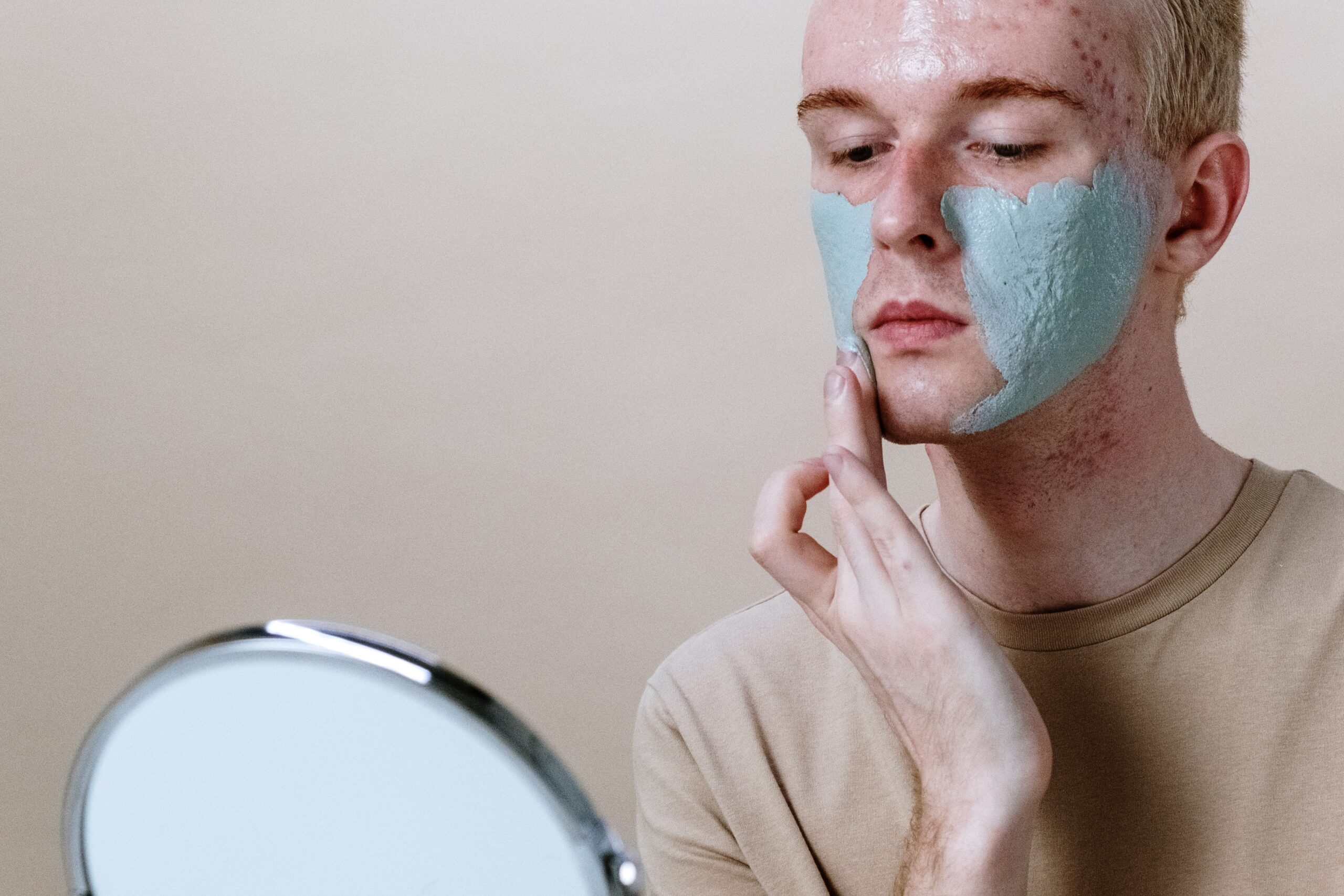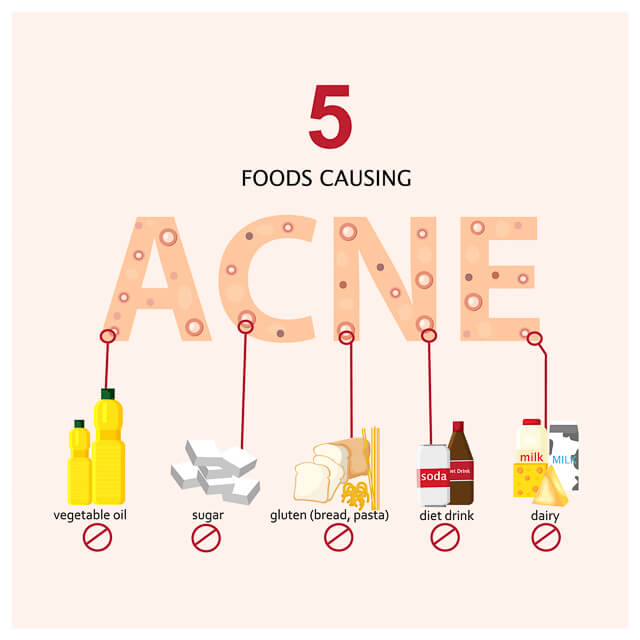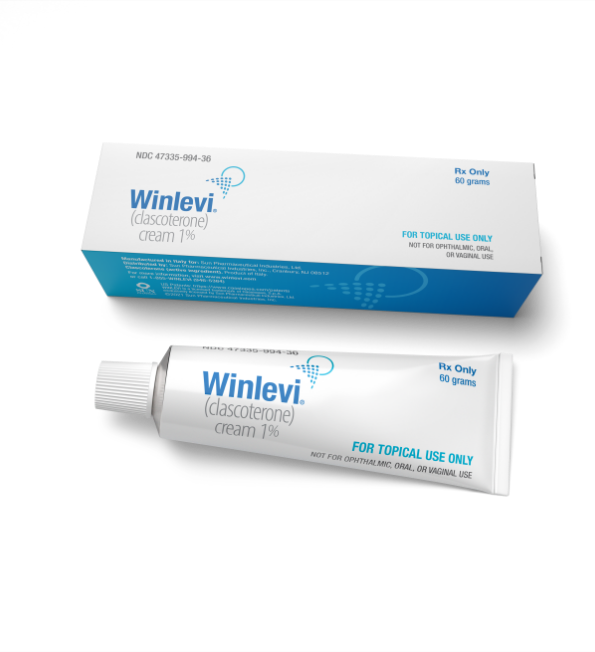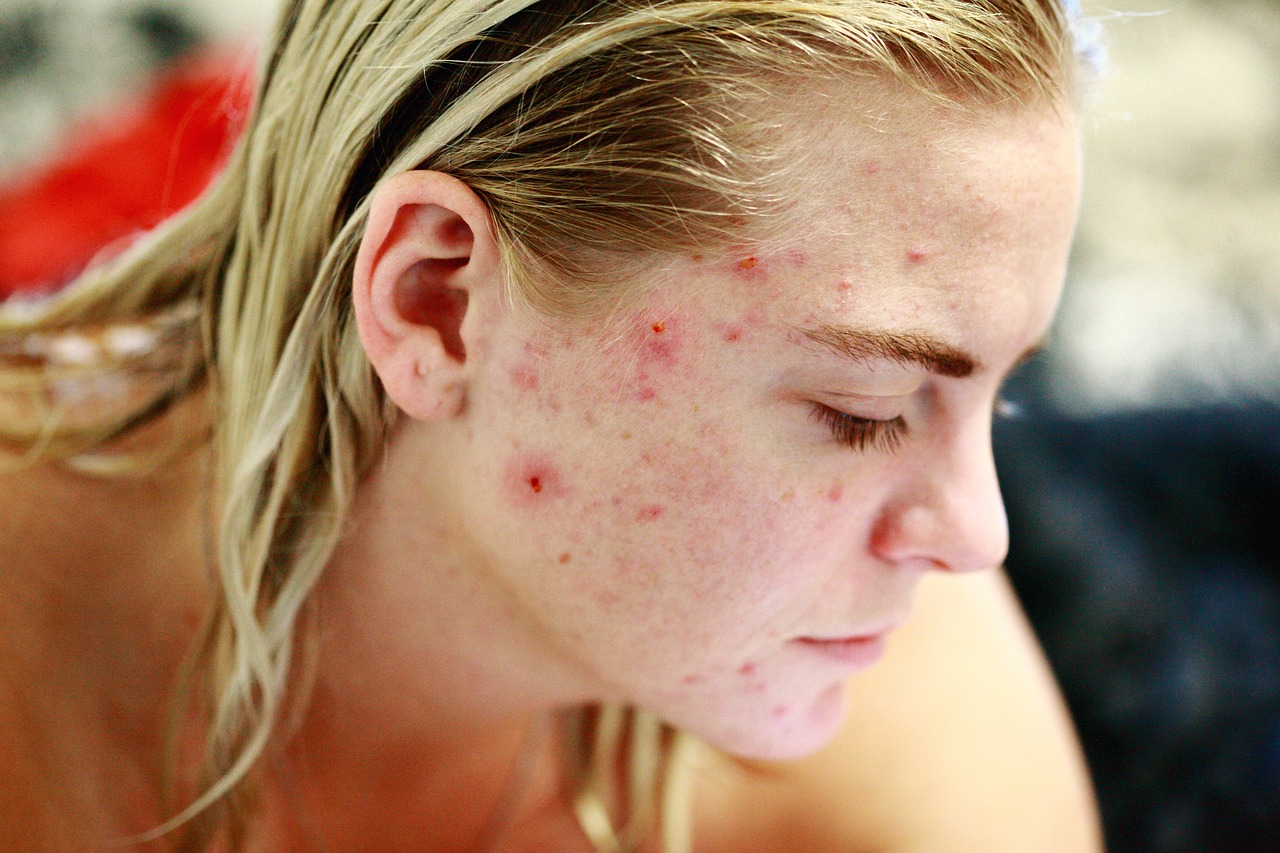
Dietary Recommendations
In most studies before 2005 to 2007, the common view has been that dietary factors do not have any important role in acne and that this skin disorder is mainly caused by genetic predisposition, as well as the influence of hormones.
Prior to 2005, in a large majority of the dermatology community, the usual consensus that was agreed on was that dietary factors are not associated with the development and progress of cystic acne. At that time, there were only a couple of very badly designed research studies on the topic (at present these two studies are more than three decades old). There was a severe lack of valid and objective evidence as well as data to support the theory that diet and dietary factors play a significant part in the development of acne. However, nowadays, there are quite a few relevant studies and a lot of evidence which is able to demonstrate that diet and dietary factors can either directly or indirectly have a major influence the following five underlying causes of acne and development.
This section gives a summary of the presently published research as well as literature which confirms that there is a definite relationship between diet, dietary factors and development of cystic acne. Diet and dietary factors:
- Increase the spread or proliferation of basal keratinocytes inside the pilosebaceous duct.
- Can be responsible for the development of subsequent obstruction of the pilosebaceous duct which in turn would lead to an outbreak of acne.
- Are also associated with the increase in the androgen controlled process of sebum secretion which is also involved in the development of acne .
- Have also been linked with the colonization of the clogged hair follicles by the acne causing bacteria Propionibacterium acnes.
- Can be responsible for the start of inflammation both inside and near the clogged hair follicles.
Dietary Supplements
Some dietary supplements are also used in the treatment and management of acne. For example, Nicotinamide is a component of the vitamin B complex and halts gland activity and can reduce inflammation, such as that seen in cystic acne. Nicotinamide might be useful in combination with other treatments for cystic acne but not as a standalone treatment option.
Zinc has been known to reduce the presence of acnes on the skin and can reduce inflammation. Therefore, zinc supplements may be useful in the treatment as well as management of cystic acne.
Recently research has shown that vitamin D deficiency may contribute to the development of cystic acne and supplements may be helpful. However, more research is needed to validate the general recommendation and use of this supplement in the treatment of cystic acne.
Dietary Recommendations for the Management of Cystic Acne
In research studies carried out on individuals with diverse populations, most people suffering from cystic acne usually link the outbreaks as well as their exacerbation to certain kinds of food and dietary factors. Some of the food items implicated as the cause of outbreaks of cystic acne include chocolate, oily or fatty foods, milk and dairy products as well as foods with a high glycaemic index.
The association between dietary factors and the development of cystic acne was highly debated. In the past but in the last 10 years however, many research studies have shown a definite connection between several dietary factors such as the glycaemic index of

foods and the amount of dietary fiber, antioxidants, zinc, omega three fatty acids, vitamin A and iodine in the diet of the development of cystic acne in people. As such, that does play an important role in the onset of acne since there is a lot of validated data as well as evidence that proves the connection with the development of acne outbreaks.
It has been found that people that have high glycaemic load diets have more severe incidents of cystic acne. The consumption of milk and dairy products and people that do not tolerate them has also been related to the onset of severe acne. Many studies have also outlined the importance of having sufficient or recommended amounts of omega-3 fatty acids, dietary fiber, antioxidants, vitamin A, zinc and iodine in one’s diet as these are also linked with the development of cystic.
In addition, some research studies have shown documented clinical evidence which suggests that the daily intake of food items with high contents of fructose, oligosaccharides, as well as polyol sugars are linked with the onset and aggravation of cystic acne and many other inflammatory skin disorders.
The connection of such food items with acne as shown in these clinical findings are further given support by the fact that incidents of severe cystic acne are generally rare in communities and societies that continue to maintain their traditional diets and do not follow the General Western diet high. This is of particular relevance regarding foods with high glycaemic index, refined sugar and carbohydrates. This sort of impact has been observed in many traditional communities like the Inuit of Canada, the Okinawa islanders of Japan, the Ache hunter gatherers that reside in Indonesia as well as the Kitavan islanders community of Papua New Guinea. The distinct lack of acne outbreaks in such studied populations clearly indicates that there is a definitive link between underlying genetic or environmental factors such as diet and the development of cystic acne. However, more research needs to be conducted to clarify the link between diet and acne, including cystic acne.
Latest articles


Hormonal Acne Treatment with Topical Creams
Acne Expert Staff
August 5, 2023

Cystic Acne on the Back: Best Treatment Options
Acne Expert Staff
August 5, 2023

Top Supplements for Treating Cystic Acne
Julia Thompson
August 4, 2023

Acne Prevention Through Proper Hygiene: A Comprehensive Guide
Julia Thompson
August 3, 2023
Recommended For You
Menu